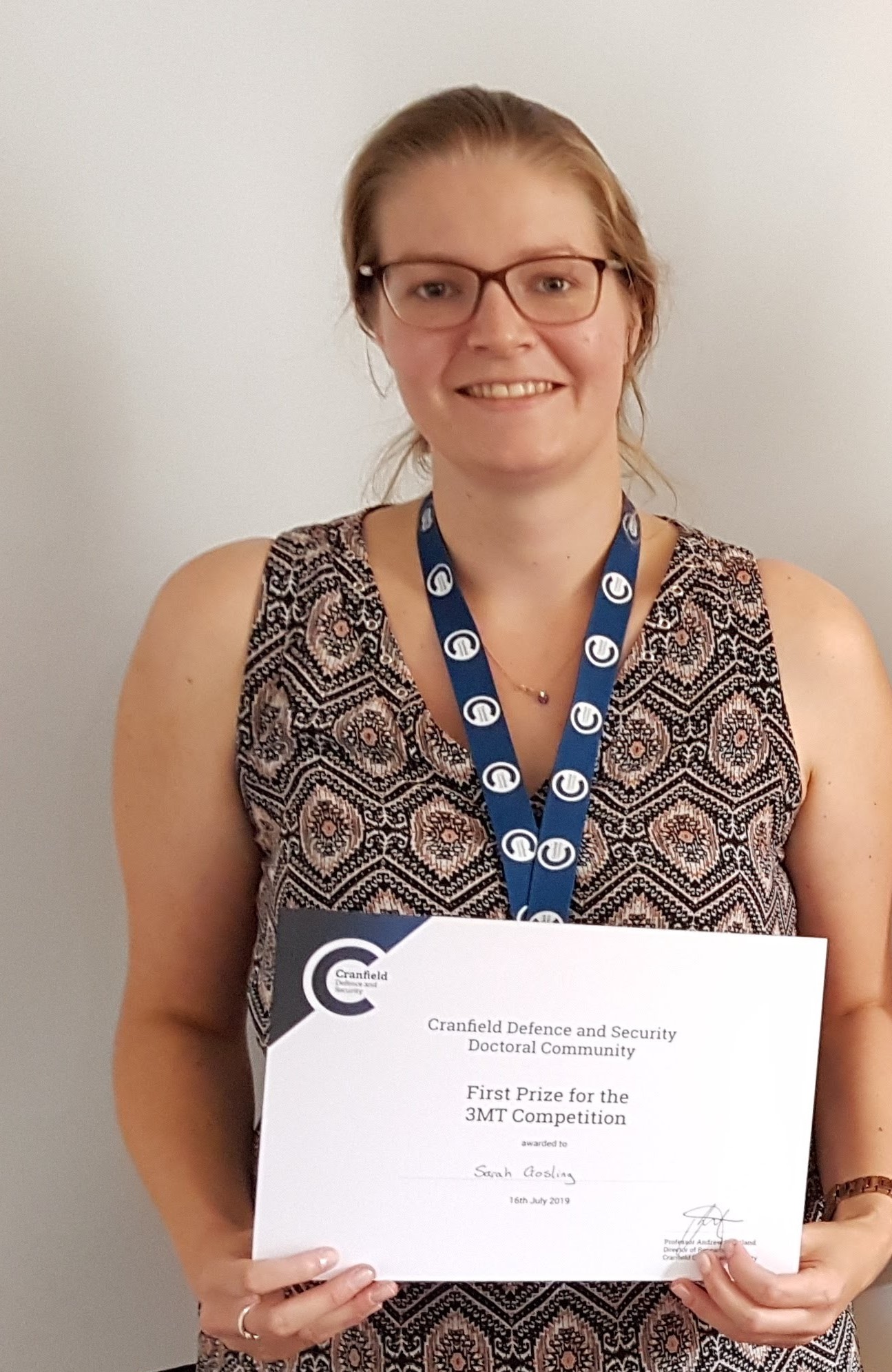Meet Cranfield Defence and Security, 3MT competition winner
29/07/2019

An interview with Cranfield Defence and Security 3MT competition winner, PhD student Sarah Gosling.
Developed by Queensland University, the 3MT competition challenges research students to concisely articulate their research to a non-specialist audience in just three minutes (using just one static slide). Sarah Gosling, a PhD student at Cranfield Defence and Security, rose to this tough challenge and was awarded first place with her research on breast microcalcifications as biomarkers of tissue pathology. Sarah gave us a little more insight into her research project at Cranfield University.

How did you get into being a PHD student at Cranfield University?
I’ve always been interested in doing cancer research, which is what my topic’s about. I actually came across this PhD by chance. It’s different to what I’ve done before, because I did a biology degree and this is more physics and chemistry and so I thought it looked really interesting so I went for it and I actually fell in love with the PhD.
Can you tell us a bit more about the research you are doing and how you go about gathering it?
I get samples of breast tissue from all over the world and I use very high powered x-rays to look at them and that requires me to go to a separate facility to actually collect all of the data together. It’s often 72 – 96 hours at a time, in a block, which is really hard work at the time. Then I take all of that data and build a model of whether or not the calcifications, which is what I am looking at, are a relevant part of breast cancer.
How long does it take to gather the research?
Because I have to gather the data in blocks at a time, I get lots of data all in one go, but then actually analysing it all will take a few months at a time and looking at whether there are patterns in the data takes a few more months as well.
What’s next for your research?
I have got a big data collection in September so that will be the big start to my research and hopefully coming up with some ideas and draw some conclusions from the data. I think there are lots of things that can be done with the research after my PhD as well because it is quite a new field.
Why did you choose Cranfield University to do your research?
Firstly, the project itself was really interesting and obviously it is based at the Cranfield Defence and Security site which is a very unique place to work and that attracted me as well because of the opportunities that the site offers.
Categories & Tags:
Leave a comment on this post:
You might also like…
Company codes – CUSIP, SEDOL, ISIN…. What do they mean and how can you use them in our Library resources?
As you use our many finance resources, you will probably notice unique company identifiers which may be codes or symbols. It is worth spending some time getting to know what these are and which resources ...
Supporting careers in defence through specialist education
As a materials engineer by background, I have always been drawn to fields where technical expertise directly shapes real‑world outcomes. Few sectors exemplify this better than defence. Engineering careers in defence sit at the ...
What being a woman in STEM means to me
STEM is both a way of thinking and a practical toolkit. It sharpens reasoning and equips us to turn ideas into solutions with measurable impact. For me, STEM has never been only about acquiring ...
A woman’s experience in environmental science within defence
When I stepped into the gates of the Defence Academy it was the 30th September 2019. I did not know at the time that this would be the beginning of a long journey as ...
Working on your group project? We can help!
When undertaking a group project, typically you'll need to investigate a topic, decide on a methodology for your investigation, gather and collate information and data, share your findings with each other, and then formally report ...
From passion to purpose: My journey at the Pinnacle of Aviation
By: Sultana Yassin Abdi MSc Air Transport Management, Current Student Born and raised in the vibrant landscape of the UAE, with roots stretching back to Somalia, my life has always been ...






